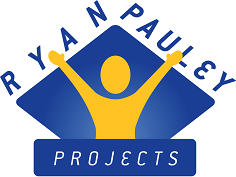One of the greatest challenges for the conscientious student faced with an oral assignment is knowing what’s expected of them. They want to get it right…but what does that mean? When talking to students, I hear comments like the following:
- “I just want to get the words right.” They have written a speech that they think meets the necessary criteria. The words have made it onto a computer screen or printed page, now the challenge is to get it into their head – because they know (or they should) that reading it is not an option. So, the conscientious ones will try to commit it to memory – with varying degrees of success. Even if they do manage in the limited time available to them, the delivery will be stilted and it will sound recited.
- “I hope I don’t leave anything out.” They believe that this is like a written assignment, where they are expected to cover a certain number of points to get full marks. They assume that this is the same, and they will be penalised for any omissions. To avoid this, they create notes for their presentation which include everything…and then these hinder their delivery as they search for the correct words amongst a whole lot of other words they have already said.
Let’s think about this for a moment. What does ‘getting it right’ mean? Is the primary purpose of an oral presentation for a student to demonstrate the ability to connect with and engage a group of listeners; or for them to show their teacher how well they have mastered a body of knowledge? Your answer might be both – because that’s the only way you can meet the criteria of the curriculum – but you can understand a student’s confusion.
Here are some suggestions that might help avoid this:
Give them priorities. If you are looking for a number of outcomes from this assignment, let them know what’s most important. I might be biased, but to me the top priority should be their ability to write and effectively deliver an oral presentation. If their top priority is to show you how much they know about the topic, it will compromise the effectiveness of their presentation. If you sit at the back of the room while they are delivering their presentation with a copy of their speech in front of you it is very easy for them to form the impression that you’re checking that they remembered it correctly. Is it any wonder then that they ignore the all-important non-verbal components in favour of the words?
Give them permission. For most students, this is at least as nerve-racking as if you had to give an important speech to your peers. They need permission from you to leave something out knowing that it will not automatically cost marks. Otherwise, they will panic about leaving one word out and it will diminish their confidence. If it doesn’t compromise the communication, you’re not going to mark them down – but they don’t know this.
Give them practice. Let them experience speaking to the whole class in impromptu or non-assessable speaking exercises. Give them hints about how to practise effectively – and how this is more that just remembering words. Have them practise saying the words aloud while standing to give them a more realistic rehearsal. Assist them with hints about prompt notes for their presentation and have them prepare them early and use in their practice.
Despite the negativity expressed by some students about oral presentations, they do want to ‘get it right’. To do this, however, they need direction from you to help them avoid the common misconceptions that compromise their presentation.
